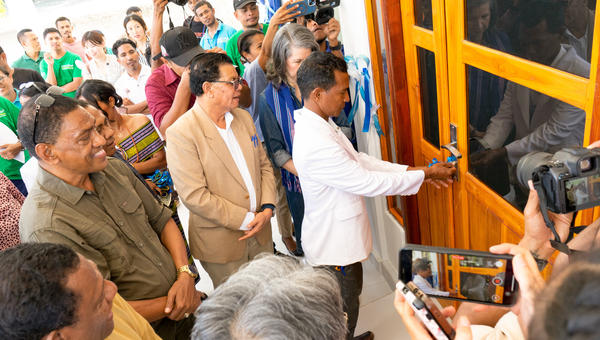Disability inclusion
The compounding crises the world is currently experiencing disproportionately affect persons with disabilities. Delivering on the SDGs for, with, and by persons with disabilities while realizing their rights as enshrined in the United Nations Convention on the Rights of Persons with Disabilities (CRPD) will require integrating disability inclusion across every dimension of development.
Guided by the United Nations Disability Inclusion Strategy (UNDIS), our twin-track approach to disability inclusion programming entails mainstreaming and providing targeted support to member states across a variety of initiatives, programmes and projects.
UNDP’s work on disability inclusion focuses on three major areas:
- Leading work on cross-sectoral issues with transformational potential for persons with disabilities – e.g. legal and institutional reform and strengthening OPDs' capacities to meaningfully engage in political and decision-making processes.
- Mainstreaming disability inclusion into specific sectors of work highlighted in UNDP’s strategic plan, including - among others - gender and climate action.
- Supporting UN system-wide coordinated action on disability, participating in interagency coordination mechanisms and elevating disability inclusion in key multilateral fora.
These aims are supported not only by UNDP’s own policy and programmatic work but also by our participation in the United Nations Partnership on the Rights of Persons with Disabilities Multi-Partner Trust MPTF (UNPRPD MPTF). This unique partnership brings together UN entities, governments and organizations of persons with disabilities (OPDs) to advance the implementation of the CRPD and disability-inclusive SDGs at the country level around the world. UNDP hosts the technical secretariat of the UNPRPD MPTF within the Governance Team.
Please check the following resources for a deeper dive into our work into this important area:
- Convention on the Rights of Persons with Disabilities [ UN Treaty Collection ]
- Guidance Note: Disability Inclusive Development in UNDP
A selection of our resources:
Explore more

 Locations
Locations














